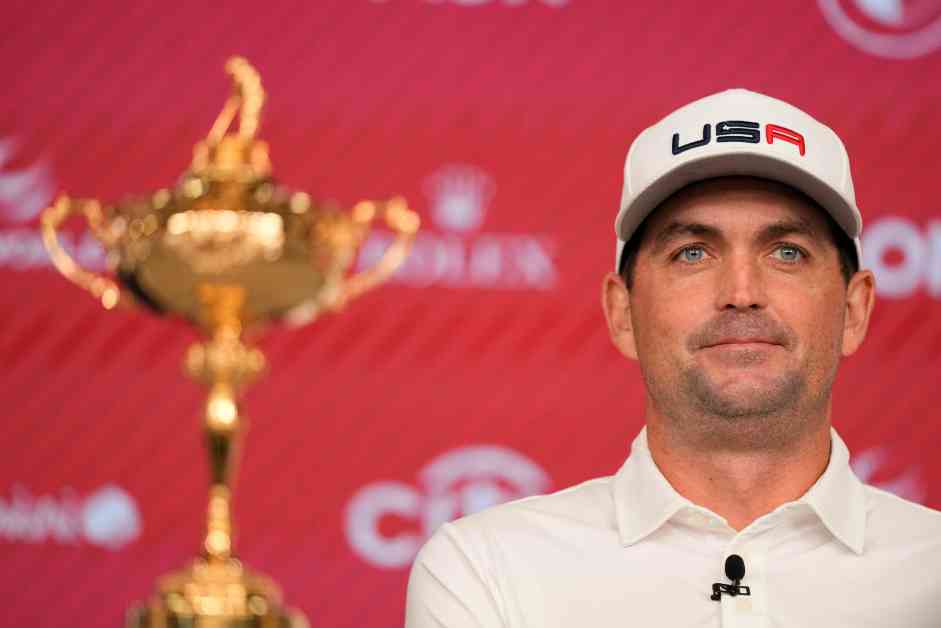NEW YORK — The decision-making process for who would captain the 2025 U.S. Ryder Cup team at Bethpage Black took an unexpected turn after Tiger Woods officially declined the role. The Americans were left scrambling to come up with an alternative plan following a disappointing loss in Rome and the sudden vacancy in the captaincy.
A virtual meeting involving key figures like outgoing PGA of America CEO Seth Waugh, Justin Thomas, Jordan Spieth, and others was convened to discuss potential candidates. The discussion centered around the need for a fresh approach and a departure from the traditional selection criteria that had been in place for previous Ryder Cup captains.
Keegan Bradley’s name was raised during the meeting, sparking interest and excitement among the group. Despite not having played in a Ryder Cup since 2014, Bradley’s passion for the event, his PGA Championship win, and his ties to Bethpage Black made him a compelling choice. The decision to appoint Bradley as the next Ryder Cup captain was met with unanimous agreement and enthusiasm from all involved.
The selection of Bradley represents a shift towards a more modern and inclusive leadership strategy for the U.S. Ryder Cup team. The decision to bypass more established candidates in favor of Bradley signals a willingness to embrace change and take risks in order to improve the team’s performance in future events.
Bradley’s surprise appointment as captain has been met with mixed reactions, with some questioning the unconventional choice. However, Bradley’s commitment to the role, his willingness to engage with players, and his focus on building a cohesive team are seen as positive indicators for the team’s future success.
As Bradley prepares to lead the U.S. Ryder Cup team, he faces the challenge of revitalizing the team’s approach and instilling a new sense of purpose and unity among the players. His selection as captain marks a significant departure from the past and sets the stage for a new era in American Ryder Cup leadership.
With Bradley at the helm, the U.S. team is poised to embark on a fresh chapter in its Ryder Cup journey, one that prioritizes innovation, collaboration, and a renewed sense of purpose. As the youngest captain since Arnold Palmer in 1963, Bradley brings a new perspective and energy to the role, offering hope for a successful and competitive future for the U.S. team.


















